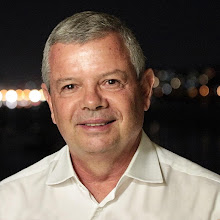Começou hoje o World Solar Challenge (Desafio Solar Mundial), uma prova disputada exclusivamente por carros movidos a energia solar, que percorrerá 3.000 km através da Austrália, reunindo 40 participantes, de 23 países.
O carro da foto, acima, batizado como Stella, foi apresentado pela equipe Eindhoven, da Holanda. É o primeiro carro solar a ser produzido com capacidade para quatro passageiros.
A competição é um estímulo ao desenvolvimento da tecnologia solar aplicado aos automóveis, como forma de substituir os automóveis movidos a derivados do petróleo, que causam impactos à qualidade do ar nas cidades e são a principal fonte de gases do efeito estufa, que provoca mudanças no clima.
Para as cidades, contar com automóveis solares traria um grande avanço sobre a qualidade ambiental mas, se os automóveis solares substituíssem os atuais ainda teríamos as cidades engarrafadas, pela insistência no modelo do transporte individual.
Mas, é claro que não é isso que se planeja para o futuro. Automóveis sempre serão necessários para usos específicos, prestação de serviços à população e mesmo para deslocamentos em áreas não servidas por transportes coletivos e de massa.
O futuro será multimodal e múltiplo quanto às fontes de energia.
Axel Grael
---------------------------------------------------------
Futuristic solar cars launch from Darwin for World Solar Challenge
Years of engineering and hundreds of thousands of dollars in technology are being put to the test, with 40 solar cars hitting the highway in a 3,000km race across Australia.
Many of the same competitors have returned for the fierce outback trek, but this year, there is a new focus.
While former winning teams Nuon from the Netherlands and Tokai from Japan will race in the "challenger" class - where speed wins - some cars will be judged on their practicality above all else.
This is in the inaugural Cruiser Class, which requires entrants to meet road regulations in their home countries, and to seat at least two people.
It shows a shift towards solar car technology reaching the mainstream, and pushing those developing the technology to search for the sustainable alternative to petrol-powered cars.
Two Australian teams have taken on this challenge, University of NSW and TAFE SA, but the real game changer in the Cruiser Class is Dutch team Eindhoven's car Stella€“ the world's first four-seat solar car.
While it does not really resemble a normal car, its bus-like facade and tear-drop profile is still much less space-age than the typical solar car.
Also new to the rules this year is a requirement for four wheels on cars in the Challenger Class - again signalling a push towards the mainstream.
The extra wheel brings weight, and the burden of wasted energy, but every effort is made to make up for lost power.
Some cars weigh as little as 150kg without their driver, therefore maximising efficiency but also increasing the dangers that come with a less sturdy vehicle.
One Challenger Class team from the University of Cambridge has already paid the price for having less grip and weight on the road.
They have crashed twice during test drives near Darwin.
Last race interrupted by bushfires
Organisers say the official scrutineering ahead of the race ensures it will be as safe as possible. Still, many unknowns lie ahead.
The last race, in 2011, was interrupted by bushfires in Central Australia.
And while a strong set of sunrays is fairly reliable in the Northern Territory at this time of year, teams will still be negotiating their strict driving times to optimise the energy they harness.
Driving is allowed between 8am and 5pm each day, but if cars wish to extend their drive to 5.17pm, in order to reach a spot by the road with greater exposure, they may do so.
In return, they then have to leave the following morning at 8.17am.
Such is their dedication to the challenge that the cars stop and camp each night on the ride of the Stuart Highway wherever they may be at the end of the day.
The race ends in Adelaide on Thursday, with a well-earned celebration for the teams, but one that probably feels a very long way away.
For now, the World Solar Challenge adventure is set to begin - and the forecast is a sunny 34 degrees in Darwin.
Fonte: Yahoo
-----------------------------
Veja também:
World Solar Challenge
Saiba sobre a atuação do Projeto Grael no tema da energia solar
Em 2009, o Projeto Grael foi vice-campeão do Desafio Solar Brasil, disputado por barcos solares.
Barco solar do Projeto Grael navega pela primeira vez na Baía de Guanabara
Projeto Grael apresenta barco movido a energia solar
Demonstração de barcos solares no ICRJ
Lars Grael faz demonstração durante o Mundial de Star do Barco Solar do Projeto Grael
Projeto Grael conclui com sucesso o I Workshop de Energia Solar
Projeto Grael promove workshop gratuito sobre mudanças climáticas e energia solar
























Nenhum comentário:
Postar um comentário
Contribua. Deixe aqui a sua crítica, comentário ou complementação ao conteúdo da mensagem postada no Blog do Axel Grael. Obrigado.